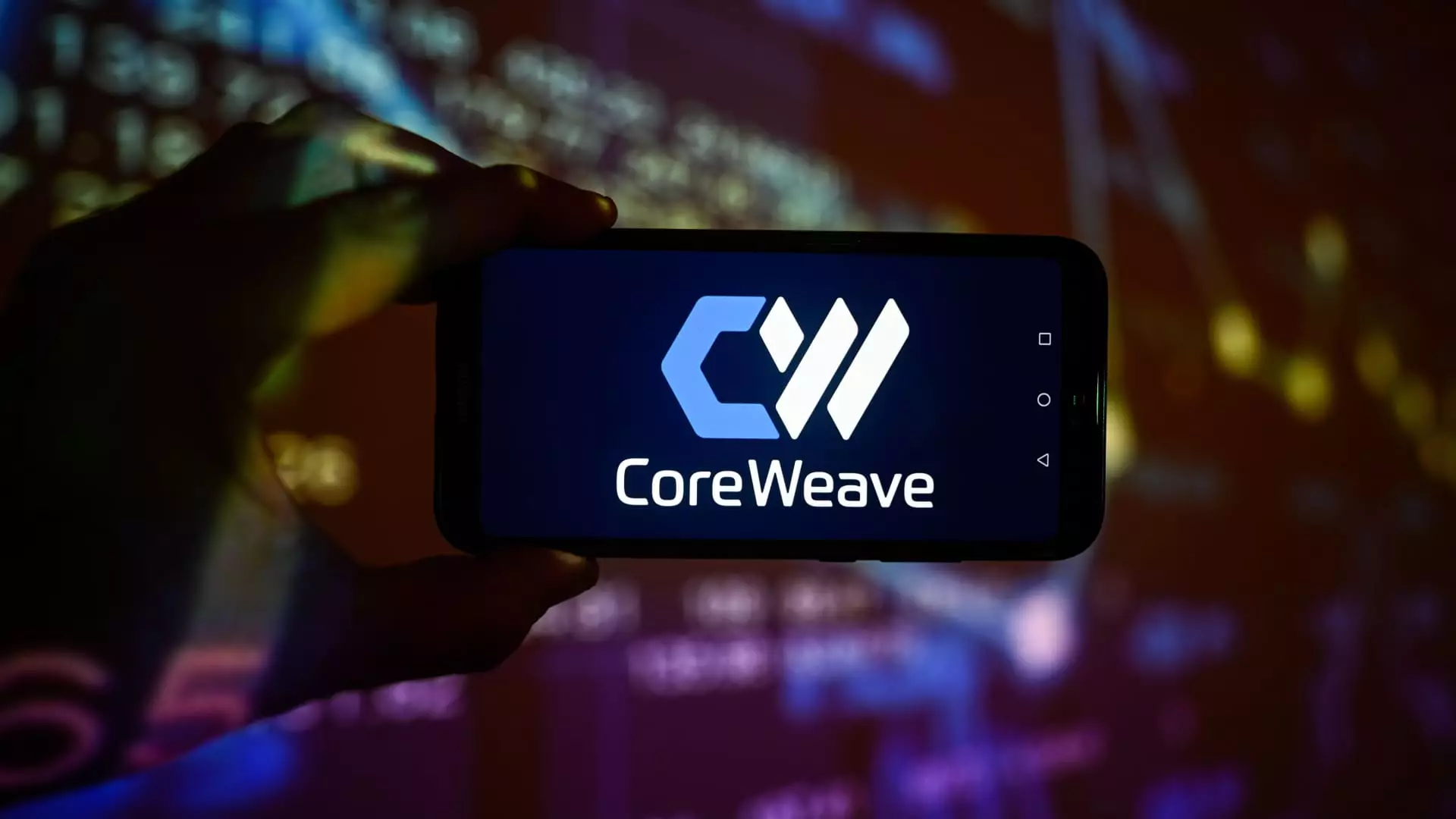CoreWeave, an artificial intelligence-focused startup backed by industry giant Nvidia, has recently announced a significant financial maneuver: a new credit line amounting to $650 million aimed at rapidly expanding its business operations and data center infrastructure. This strategic funding is part of a broader narrative of growth within the tech sector, particularly as companies scramble to establish dominance in the burgeoning AI market.
In just 18 months, CoreWeave has managed to accumulate an impressive $12.7 billion from a mix of equity and debt financing. This figure includes a substantial $1.1 billion funding round that took place in May, reflecting the company’s valuation of approximately $19 billion at that time. Such financial backing not only underscores investor confidence in CoreWeave’s business model but also highlights the growing importance of AI technologies in various sectors.
CoreWeave’s ambitious plans extend beyond their immediate funding needs; they aim to establish 28 data centers across the United States and internationally by the close of 2024. Their expansion targets notable cities such as Austin, Chicago, Las Vegas, and even London. This geographic diversification is critical, as it positions CoreWeave closer to a wider array of clients while tapping into different regional markets. Moreover, the company has indicated plans to construct an additional ten data centers in 2025, reflecting a vigorous growth trajectory that many in the industry will closely observe.
The necessity for such expansions stems from the increasing demand for computational power, especially given the complexity of training AI models. Companies are racing to develop advanced AI capabilities, which often require vast quantities of high-performance graphics processing units (GPUs). Historically, Nvidia has been the go-to provider for these specialized chips, forming a symbiotic relationship with startups like CoreWeave that lease this technology to other firms, including heavyweights such as Microsoft and AI firms like Mistral.
CoreWeave’s success in securing funding is part of a larger banking trend that sees financial institutions eager to invest in AI-related ventures. With estimates suggesting that the generative AI market could exceed $1 trillion in revenue by 2032, banks are adapting their strategies to capitalize on the potential windfall. For instance, the recent credit facility arrangement was led by notable financial giants like Goldman Sachs, JPMorgan Chase, and Morgan Stanley, along with other participants including Barclays and Citi.
This rush towards investment in AI also reflects a broader strategy among banks to position themselves as key lenders ahead of a potential wave of initial public offerings (IPOs) in the sector. Indeed, CoreWeave’s latest credit line mirrors similar financial maneuvers by other AI players, such as OpenAI, which secured a staggering $4 billion revolving line of credit just last week. With OpenAI’s funding bringing its liquidity to over $10 billion, it emphasizes the narrative that AI is not just a field of technological advancement, but also a lucrative financial venture.
The financial backing received by CoreWeave highlights the underlying market dynamics at play in the tech industry, particularly around AI. Given that building and training AI models is drastically expensive, a robust supply chain of technology is essential for ongoing innovation. As more startups emerge and existing companies expand, the competition for high-quality, cost-effective GPUs will intensify. This is an environment that Nvidia has deftly navigated, not only by distributing its chips but also by investing in promising AI companies, ensuring that their technologies are embedded widely across the industry.
However, despite the substantial financial backing, the details surrounding CoreWeave’s credit line—such as interest rates and repayment timelines—remain undisclosed. This lack of transparency could lead to questions regarding the long-term sustainability and financial strategy of the company amidst a landscape that is continually evolving.
As CoreWeave embarks on this ambitious journey, stakeholders will be keenly watching how the company leverages its new credit line to capitalize on growth opportunities in the fast-paced AI sector, paving the way for potentially transformative advancements in technology.


Leave a Reply